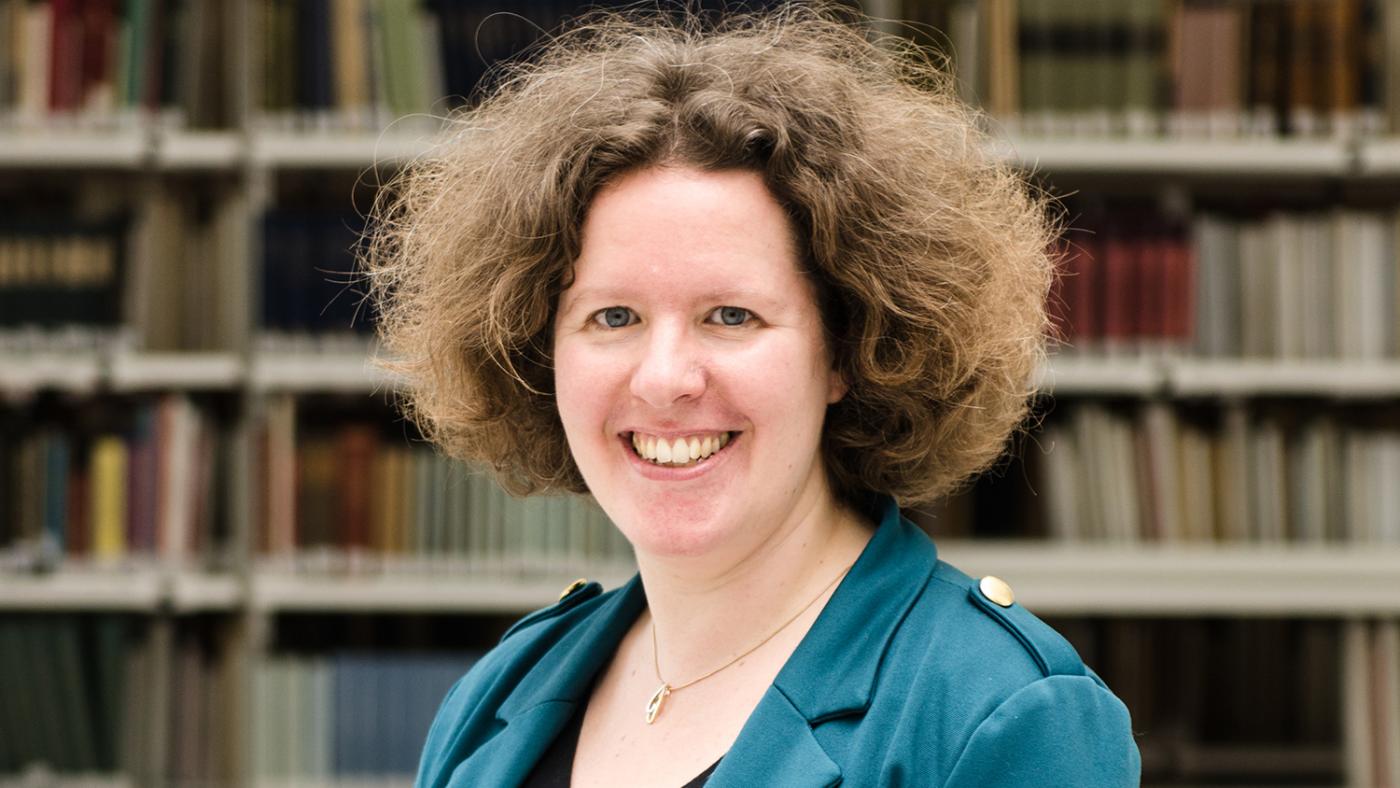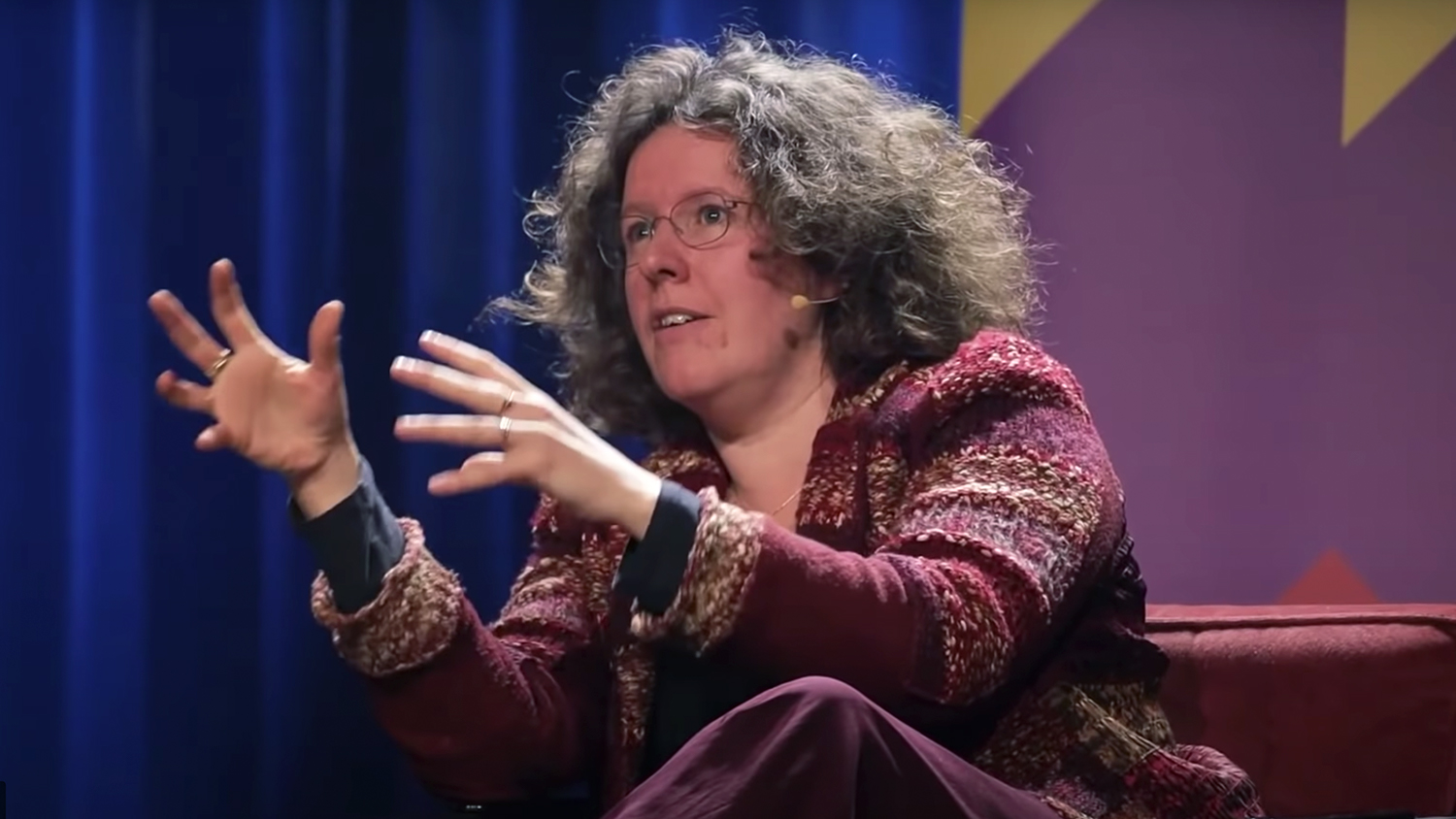International relations expert Laurien Crump: ‘Speaking freely sometimes comes at a high cost’

“However tragic this is, those first few days in Hilversum (Dutch city where many media companies are based, Ed) were thrilling in a strange way”, admits Crump, a specialist in multilateral diplomacy, European relations with Russia, and European security during the Cold War and after. “If I can contribute to someone’s personal growth, intellectually or in any other sense, that really makes me tick. So I was glad to share my interpretation with a wide audience and try to help people make sense of something so confusing and frightening”.
But these are far from being Crump's first media appearances. She is no stranger to the public debate. Throughout her career, she’s shared her ideas with all sorts of audiences, from national newspapers NRC Handelsblad and Trouw to outlets like The Clingendael Spectator and Atlantisch Perspectief, which are read by many diplomats. She has also organised workshops for secondary school teachers and pupils.
When DUB spoke with her, on March 16, she was set to be onstage at Tivoli Vredenburg that same night for a Q&A to raise funds for Ukraine. The next day, she would follow a course on educational leadership and then prepare for a conference in Stockholm. She currently serves as Cluster Chair at University College Utrecht (UCU) and will become Head of the History of International Relations at their History department, with a team of over 40 people. All that while doing research, teaching, and leading a busy personal life.
How did you become interested in international politics and the cold war in particular?
“I’m trained as a classicist at the University of Cambridge. I worked at secondary schools for ten years, four in the UK and six in the Netherlands, at the Utrecht Stedelijk Gymnasium. There, I served as the internationalisation coordinator, in charge of many exchanges, including schools in Eastern and Central Europe. That’s what got me interested in the region in the first place. So, I decided to pursue a History degree aside from my job. Afterwards, I got a Master’s in Comparative History, where I analysed why the Soviet Union intervened in Hungary in 1956 but didn’t do the same in Poland in 1981. In short, I grew more and more aware of how the cold war still reverberates in those countries.”
You’re an academic who also likes to contribute to the public debate, through op-eds and interviews on the radio, TV and newspapers. Why?
“I think that reflects the fact that I entered academia at a later age, coming from a teaching background. I became a teacher exactly because I like to engage with an audience. Whether it’s with 12-year old pupils or grown-ups, I want my work to have an immediate effect and use to other people. If you’re only concentrating on scholarship in the strictest sense, the number of people who benefit from your research is rather narrow.
“When I graduated at the age of 21, I was offered a PhD position in Ancient Philosophy in Cambridge, but I didn’t take it because I felt that I would lose touch with the real world, so to speak. My desire to teach grew out of that drive to engage with other people. I’m a very sociable person. Since we’re paid with taxpayers’ money, I believe it’s my duty to do something for the public. If I’m researching something that is relevant to contemporary debates, such as NATO’s enlargement or the relations between Eastern Europe and Russia, then I have this deeply-felt conviction that I should share it with the widest possible audience.”
How do you evaluate the news coverage about the war in Ukraine?
“The debate is so heated sometimes that there’s not much room for nuance, especially in some newspapers. Things are sometimes very black and white in the Dutch media. That might have something to do with the MH17 disaster and the fact that the Netherlands has a strong history of being anti-communism and later anti-Russian. I’ve contributed to Belgian media as well and the debate there seems a bit more multifaceted, there’s room for more perspectives. On the other hand, a slightly more nuanced perspective has been increasingly welcomed on Dutch radio and TV.
“Sometimes I feel that speaking freely comes at a high cost. When you try to bring some sense of nuance to the debate – without justifying what Russia is doing, of course – there are people, most of them male columnists of a certain age, who immediately attack you. I recently stated that Western countries should refrain from using rhetoric that adds fuel to the fire, and then De Volkskrant columnist Max Pam wrote a really strange column comparing me to filmmaker Theo van Gogh, who was murdered by a radicalised young man while saying 'wait, we can talk about this'".
"The day the war broke out, I bumped into one of these columnists in Hilversum, who told me I should be ashamed. As if I had blood in my hands. That’s tragic because these are people who are against Putin because they proclaim to be in favour of freedom of speech and freedom of the press, but at the same time, they’re trying to put people who have a slightly different analysis into a corner. I’m not losing my sleep over this, but it is worrying because of the repercussions it has on the tone of the debate and possibly on policymaking.
“Finally, I think that also reflects a bit of sexism. Some people don’t appreciate seeing younger women entering the stage.”
Do you have any tips for fellow academics who would like to engage more with the media?
“A good way to start is to send op-eds to newspapers. That’s often how you get the ball rolling. Sometimes a radio station invites you because of an op-ed you wrote and, if you’re good on the radio, people assume you’re also good on TV. You need to stick your neck out and be brave – I’ve written things in newspapers or said things on TV which I know won’t make me very popular. My tip is to avoid social media so you don’t see what people are saying about you. You must have the courage of your convictions.
“Another important aspect is to be able to formulate your interpretations briefly, but also with a certain amount of nuance. You want to provide compact analyses instead of sweeping statements. That is sometimes difficult for scholars, as they’re used to having well-founded arguments with a lot of sources and data. On TV and the radio, you usually get three minutes to talk.
“Additionally, you have to be very sensitive to different audiences – that’s where my experience as a secondary school teacher comes in handy because I taught pupils from different levels as well as Hovo (hoger onderwijs voor ouderen), a lecture series for people over 60 years old. People who watch Nieuwsuur, Goedemorgen Nederland and RTL-Z are very different audiences, so you have to be able to adapt how you speak, but I find it important to provide all those audiences with context.”

Screenshot: Studium Generale, De Duiders: Russian threat at the Ukrainian border. Event held on February 9, 2022.
You said you avoid reading comments about you on social media. But you know there are people out there echoing these columnists, accusing you of relativising Putin's actions. How does it make you feel to know that these things are being said about you?
“I see it as symptomatic that people are trying to simplify a very complex situation in a way that’s not going to solve anything. Just shouting very loudly that Putin is nuts and the war is bad is not going to solve the issue, even though I agree with both statements. It’s worrying when people cannot distinguish between having a sense of nuance or context and justifying the war. Let me be clear, I think Putin’s aggression in Ukraine is dreadful and absolutely illegitimate, but to resolve this situation, we need a wider context.”
It’s becoming increasingly common for academics to receive threats in the Netherlands. Has that ever happened to you? Do you get any hate mail?
“After Max Pam’s bizarre column in De Volkskrant, I got some backlash, like people saying God will punish me. But that dried up very soon.”
You must have enviable time management skills. How do you manage to do so many things at the same time?
“The secret of my time management is that I’m very proactive. I don’t wait, I just act. A lot of time is often spent on doubts and decision making, so when something lands on my plate, I usually just do it right away. I’m a quick thinker and I associate things easily, which helps to make the best use of time. I’m not much of a planner, I must say. I sort of go with the flow. There’s not much of a method in my madness, but it seems to be working!
“Yes, I do sleep and I do make sure to take time off. I really try not to work on evenings and weekends because our son, Tommy, is disabled and needs very intensive care. He is eight years old, but he is at the stage of a two-year-old. I think taking time off is important because it makes you do things more efficiently when you do work.”
Work-life balance is a hot topic at UU right now. How do you make sure you find that balance?
“As I said, our child Tommy needs very intensive care, and when he’s not at school, this care is provided by us. We’ve decided to move to the Achterhoek, which is a more suitable ambience for a mentally disabled and severely autistic child, so I live 120km away from work and from Hilversum, which has made it more of a challenge to combine all these things.
“My son will never grow up mentally, which means the care is only going to become more intensive as the years go by. I want to be a good mother, but I also want to be a happy mother, so I feel that combining all these things and not seeing his disability as an obstacle to my career helps me cope in the long run.
"Since February, I’ve been renting a room in Utrecht so I can stay the night if need be. That’s also better for our son because it’s easier for him to understand that when I’m at work, I’m at work. Otherwise, it would be hard for him to understand why I’m home but I can’t give him any attention.
“On weekends and when I am at home, he is my top priority. I also reserve Wednesdays for Tommy. Last but not least, my husband and I agreed that I will not concede any interviews on Friday evening or at weekends unless it’s Nieuwsuur. That show is such high quality, I can’t resist that.”
Laurien Crump will soon start a blog about work-life balance on DUB. Stay tuned.